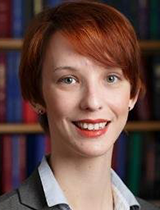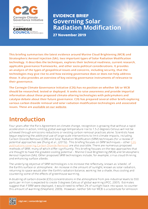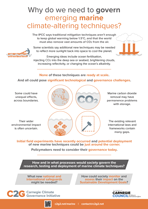CAMPFIRE CHAT
Governing Solar Radiation Modification Research:
Insights from Marine Cloud Brightening and the Great Barrier Reef
16 July 2020, 12:00-13:00 UTC
Climate change poses huge threats to Australia’s Great Barrier Reef, which may lead to profound environmental and socio-economic consequences in the region. In response to these risks, scientists are considering the viability of developing and deploying Marine Cloud Brightening (MCB), which seeks to whiten clouds over the ocean to reflect solar radiation back into space in order to achieve cooling. MCB is still largely theoretical, but if ever deployed at scale, could create large and potentially long-term risks and governance challenges. The international science and policy communities do not yet know enough about the risks and potential benefits to understand if this technology could be viable, or – if so – whether, when or how to deploy it. An immediate challenge is the governance of its research. Safeguards may be important to ensure research doesn’t lead us down a slippery slope towards eventual deployment.
The recent first outdoor MCB experiment conducted by Australian scientists went largely unnoticed by the general public and has generated some interesting but limited debate. In this C2G Campfire Chat, we will explore:
- How to situate MCB in the global challenges of response to climate risks context?
- What is the latest research and debate about MCB as well as the governance implications of potential deployment?
- What could we learn from the recent MCB outdoor experiment in Australia to move forward the governance of Solar Radiation Modification research?
The Campfire Chat will consist of 30-45 minutes of discussion between the speakers, followed by a Q&A with audience members.
Featuring:
- Kerryn Brent, lecturer at the University of Adelaide and member of the Australian Forum for Climate Intervention Governance;
- Silvia Ribeiro, Latin America Director, ETC Group;
- Phillip Williamson, Honorary Reader, School of Environmental Sciences, University of East Anglia
- Paul Rouse, Science Advisor, C2G (Moderator)
Related posts:
Putting the Great Barrier Reef marine cloud brightening experiment into context
Guest post by Kerryn Brent, Jeffrey McGee, Jan McDonald and Manon Simon


